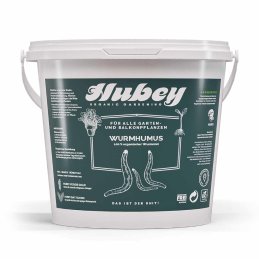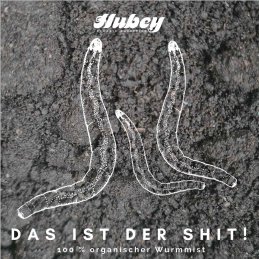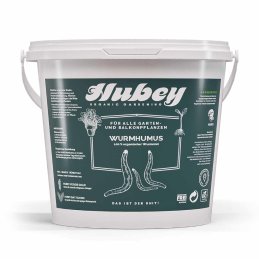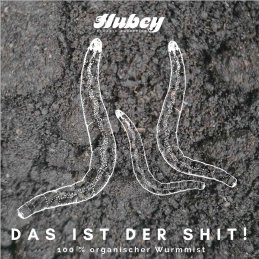Worm manure
Worm humus, consisting of the excretions of earthworms, is one of the most valuable pure biological fertilizers.
 "Only the earthworm is able to produce such perfect and balanced humus that is a perfect organic fertilizer and is capable, like no other, of improving soil structure, increasing vegetative growth and fruit production, as well as improving the quality of the nutrients it contains." Prof. F. Garofalo University of Turin
"Only the earthworm is able to produce such perfect and balanced humus that is a perfect organic fertilizer and is capable, like no other, of improving soil structure, increasing vegetative growth and fruit production, as well as improving the quality of the nutrients it contains." Prof. F. Garofalo University of Turin
No other animal handles organic waste as the voracious earthworm does. Relatively quickly, it processes various wastes into worm humus. These excretions have a crumbly structure and contain a variety of bacteria and enzymes. Therefore, worm humus is much more fertile than other types of soil and is the ideal soil conditioner.
By the way: Per day, a single compost worm processes half of its body weight into worm humus!
Because it significantly contributes to the preservation and improvement of the soil structure, worm humus is of high importance in organic farming. In addition to loosening the soil, it also increases its ability to store water. The soil-improving and plant-strengthening effect promotes growth and fertility of plants considerably.
Besides nitrogen, phosphorus and potassium oxide, worm humus also contains a high proportion of humic acids. It also has enough essential trace elements such as iron, manganese, copper and zinc. The special feature of worm humus, however, is its high content of enzymes and microorganisms.
Effect
Worm humus is suitable for all indoor and outdoor plants and due to its gentle effect and the root-promoting substances it can also be used for the breeding of seedlings and the cloning of cuttings. In the soil, it operates quick and it hardly causes any smell.
The purely biological fertilizer involves many benefits for soil and plants:
- immediately available for the plants
- long available
- continuous nutrient supply
- balanced nutritional content
- improves the soil structure
- rich in positive microorganisms
- promotes root growth
- improves plant growth
- strengthens the plants and makes them more resistant to diseases and pests
- overfertilization impossible
- regenerates depleted soil
Nutritional supply
Since the soil degrades the worm humus only very slowly, it is continuously supplied a balanced amount of nitrogen, phosphate, potassium oxide, calcium, magnesium and minerals, over a longer period. This high content of regulating substances promotes the resistance of the plants. Through this successive release of the substances, it is almost impossible to fertilize too much and thereby burn the plant roots.
The microorganisms contained in the worm humus simplify the plants' nutrient uptake by processing the organic part of the soil. They also enable the degradation of toxic substances, while they also protect the plants from other harmful microorganisms.
The high nitrogen content makes worm humus the perfect growth promoter. It is ideal for the formation of chlorophyll and thus responsible for a lush foliation.
Soil improved by worm humus has a more acidic pH value. This prevents fungi that could damage the plants and their root system.
For depleted soils, which, for example by the use of pesticides, are no longer able to detoxify and regenerate themselves, worm humus is perfectly suitable.
Plants fertilized with worm humus, become more fertile, bloom longer and are less susceptible to bacteria, diseases and fungi.




